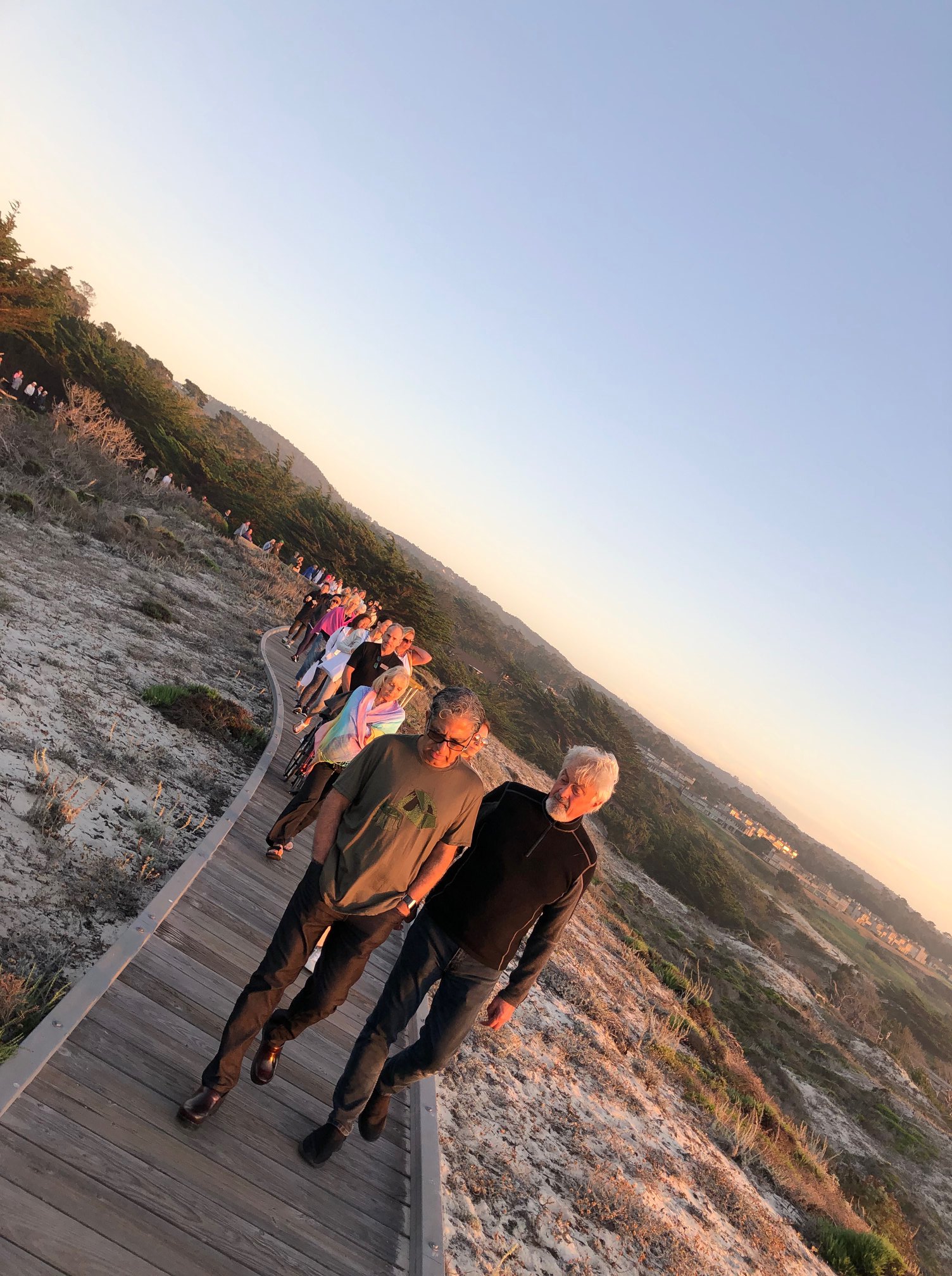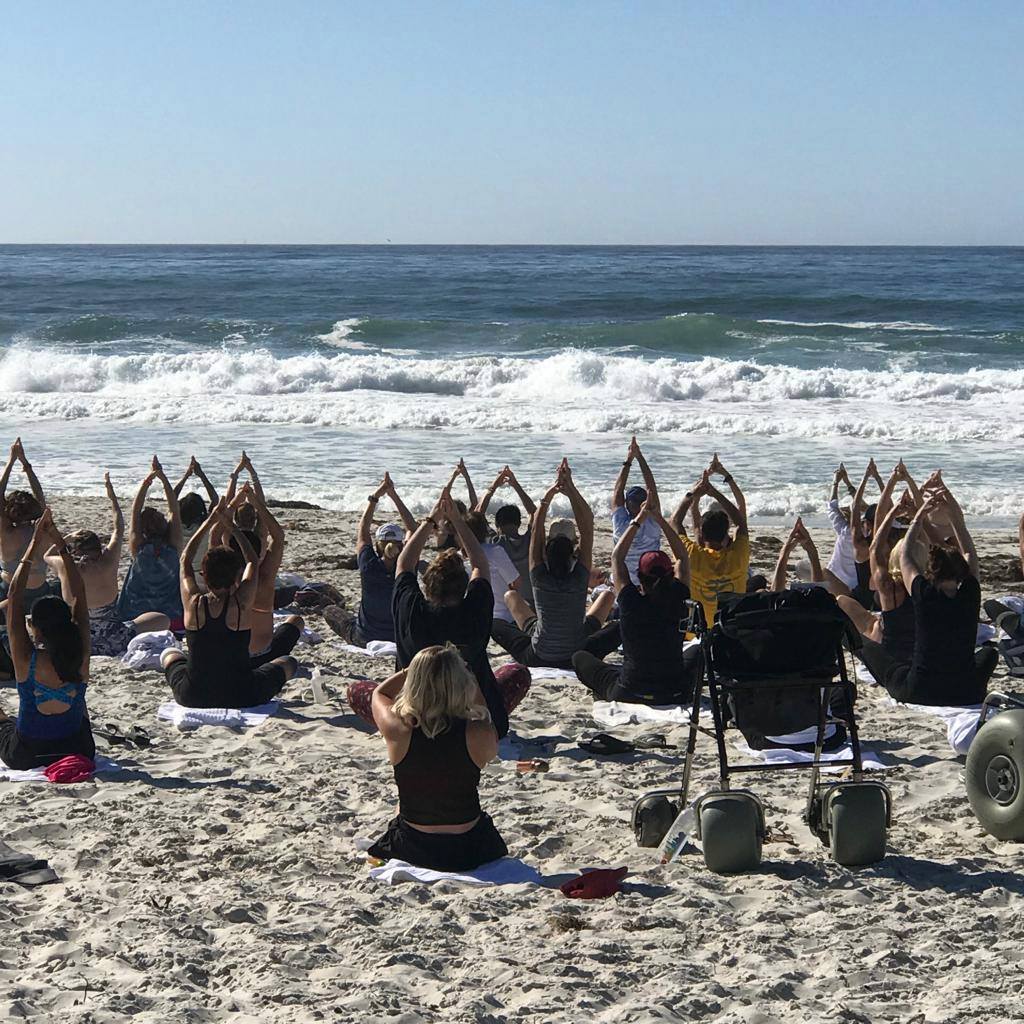Two years ago, after attending my first silent retreat, I wrote about the four epiphanies I had while I was there, and how you apply them to your daily life. This week, after having been cocooned in nature once again in Monterrey, California, I’m reflecting on a few more that I’d like to share before leaving this “heavily meditated” state.
I’ve just spent a week in silence with no screens, phones, or books, and no distractions outside of meditation, yoga, and teachings from Deepak Chopra and his team. Getting here was quite the journey, and I’m not referring to the transatlantic flight from London. Last time I was here, I came to get re-certified as a meditation teacher with the Chopra Center after a decade in practice, but this time, I needed the retreat on a deeper level.
If you’re a meditator, you’ll know what I mean by the “awe” of meditation — a feeling you get from regularly connecting to silence, enabling you to release angst, worries, and stress and instead appreciate the joy of life itself. Sometimes it may only last a few moments, but in that time, you gain perspective, and realize that everything is ultimately OK. It’s an incredibly liberating place. I’ve had moments of experiencing this feeling of awe for almost two decades now, but lost it in the last few months due to family illness and loss.
Before I left, I thought about what I would potentially gain from another retreat. Would one week of disconnecting reconnect me and restore my mojo? Well, with the amount of preparation it took, I really needed it to work. Being away from two young kids and a sick husband for a week required a four-page spreadsheet of arrangements and an army of helpers. Planning it was like writing a T.V. production call sheet, and yet also reminded me why I needed this retreat.
Here’s what I took away from the week of mindful silence:
1. To truly benefit when you are unplugged, make a physical distance between you and your devices.
Our tech-filled lives are so overloaded, and can get in the way of our well-being. How often do we make time to reflect on which habits or lifestyle choices may not be serving us well? We know the benefits of disconnecting from our phone and computer and how that helps sleep, but in addition, recent studies show that just the presence of a device in your field of vision can affect your ability to switch off. Last time on the retreat, my phone was off but I kept it in my handbag. This time it was in my suitcase, and the difference it made was palpable. If you have tech-free meetings or screen-free time before bed, try putting your devices completely out of sight and notice the difference. I had the deepest sleep I can remember. (Arianna Huffington’s Phone Bed is the perfect aid so that they’re not in the bedroom with you at night!)
2. Solitude is not the same as being alone.
Spending a few minutes in silence and connecting with each of your senses in turn can help to quieten the whirring of the 60,000 to 80,000 thoughts we have each day. A simple method is to isolate each sense in turn. Start by looking at all the colors, shapes, objects in your periphery vision viscerally, as if looking through the lens of a baby without naming what you see. Then, close your eyes and list all the sounds around you (voices, cars, the wind, your breath, etc.). Take a moment just to smell, then list the tastes in your mouth and finally feel the connection between your skin, clothes and the ground. This process can be more beneficial if you’re sitting in nature. A recent study showed that spending two hours a week in nature is optimal for health and well-being. After just a few minutes of rotating between your senses, you become aware of the “silent witness” — the “I” behind your thinking mind.
3. Recapitulate your day for a good night’s sleep.
This simple technique helps you let go of the day’s stressors and have a deeper, less interrupted night of sleep. When you close your eyes, take a couple of minutes to relive your day as if watching it like a movie in fast forward from the moment you woke up, through all activities, interactions and conversations until bedtime. When you practice this recapitulation exercise, don’t pause on any scene, and don’t give yourself time to interrogate or ruminate over any action or interaction. This ritual is a reminder that every memory is in past. Now is the only reality, and this realization can help us release negative thoughts before going to sleep.

4. Boost your energy by being in the present.
I’ve known for a long time about the benefits of mindfulness and being in the present moment in terms of focus, releasing stress, connecting to others, empathy, and performance — but I hadn’t thought of it in terms of energy. Due to family circumstances, I’ve felt rather depleted recently and have realized that a lot of that has been due to worrying about the event that caused current challenges or reflecting on the outcome. Energy is depleted by anticipation and regret.
5. We talk too much.
After week spent in silence, I really don’t miss my voice. Apart from writing “gluten-free please” on a piece of paper when getting my meals, I haven’t felt the urge to communicate any words to anyone around me. There have been past claims that on average a man uses about 7,000 words a day and a woman about 20,000 (an idea from The Female Brain by Louann Brizendine). But this week showed me that most of us would benefit from talking less, and listening more. Deepak Chopra recommends that before making a comment, you should ask yourself if it is kind, true, and necessary.

Now of course, I’m reflecting on the week while in the state of natural high, reached when you meditate for hours a day. It’s a beautiful, giddy, sentient experience, and a challenge to replicate back in the office or on the school run, but the learnings are simple: We all need time to disconnect, unplug, recharge. We are obsessed with keeping our phones and other tech devices charged, so why do we forget or feel guilty about regularly powering down and recharging ourselves? It’s not a luxury, but a necessity.


